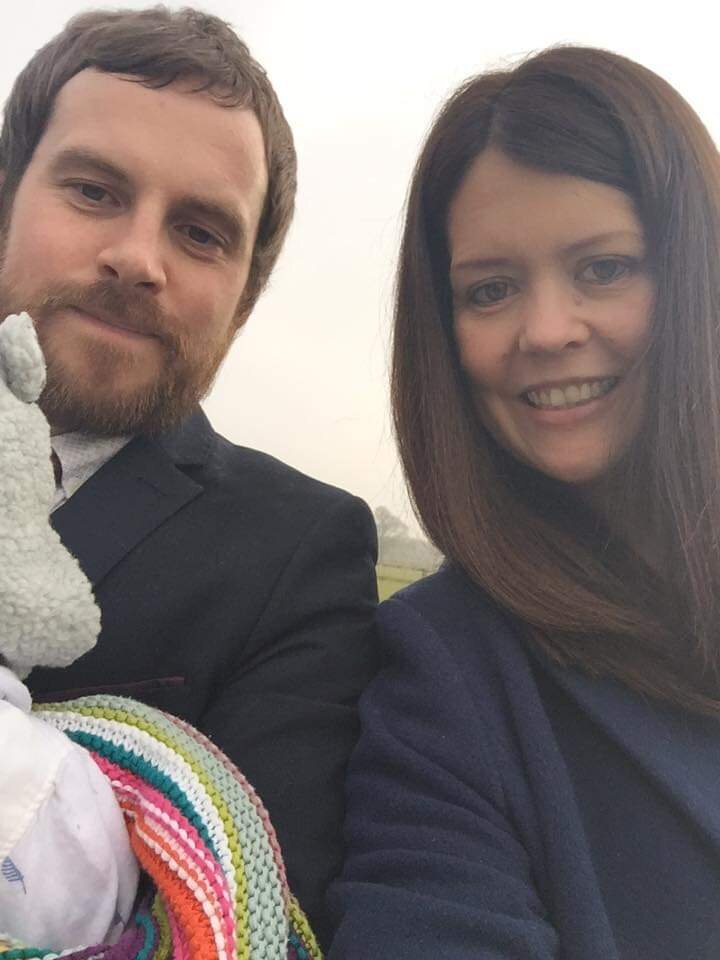'Man up,' they said
‘Manning Up’ and the modern age… why it’s time to flip the script
exclusive | 5 min read
Man up and get on with it, mate. Does that sound familiar? You’ve probably been on the receiving end of it at some point.
Whilst the testosterone-fuelled, rival-decimating, alpha-male stereotype dictates cracking on and burying your emotions, bottling things up can, in fact, be harmful.
In the UK, suicide is the biggest killer of men under 45, accounting for three quarters of all suicides here.
Mental health isn’t tangible like a broken leg or a deep cut and it’s easy for people to discount it. But your mental health is the very foundation of your progress and well-being in this world.
This is a lesson I learned the hard way.
One in four people suffers mental health problems, and I’m one of them. I take measures nowadays to manage my mental health but there was a time when I let it spin out of control.
Around six months after our wonderful son, Sidney, was born in 2016, my wife Lynsey and I relocated from London to the north-west. In a bid to make a better life for Sidney, we moved away from everything and everyone we knew. Settling into a new area wasn’t easy and we felt like fish out of water for some time.
Feeling helpless
In the midst of this huge life change, Lynsey developed cervical cancer. The doctors caught it early but Lynsey needed four months of medical procedures and treatment. Seeing her go through it made me feel scared and at times, helpless. I shoved my feelings deep down inside, focusing on being there for her and Sidney.
Fortunately, she slayed the beast and is now cancer-free.
But during that period, our lives were turned upside down. I was juggling a colossal to-do list, including running a freelance business, caring for an infant and a poorly wife. The pressure took its toll, leaving me burned out.
Instead of reaching out for support, I told myself to man up and get on with it. After all, no one ever achieved anything by crying and moaning… a damaging societal philosophy drummed into me since early childhood.
The reality was, I was barely sleeping, getting up at 5am after being woken several times in the night. When the day started, a tumult of demands on me physically and emotionally battered my diminished reserves. All the while, Lynsey and I tried desperately to claw together a little family time and normality.
But late in the evening, after Sidney was in bed and Lynsey was resting, I downed beer and whiskey. When I was good and drunk enough, I snatched a few hazy hours of broken sleep, sometimes on the sofa, sometimes in bed. Drink, sleep, adult, repeat.
After a month or two of this, my anxiety was at an all-time high and my obsessive-compulsive disorder (OCD) – something I’d struggled with since my early teens – began to rear its head.
While wading through my chores and tasks, I touched wood countless times to prevent something catastrophic happening – a common manifestation of OCD.
Blindsided
I’d lived with mild OCD for many years and had wrongly assumed that no matter what, it would remain that way. But, when my life struggles ramped up, so too did my condition. And for months, I hadn’t been looking after myself or addressing my bubbling emotions. I’d been running on empty and now it had backfired spectacularly.
My symptoms intensified and I hid them. I felt overwhelmed in busy places and at home. No space felt safe or comforting. To cope, I touched my head or anything remotely wooden - doorframes, skirting boards, the floor - every time an uncomfortable thought entered my mind. This would happen multiple times an hour.
When these mental health issues started to become debilitating, slowing me down and making it difficult for me to focus for more than a few seconds at a time, I cut down on the drinking and took up running. It helped but I was using a plaster on a deep wound. I was still ignoring the beating heart of the issue: my OCD and anxiety.
Not long after Lynsey was given the all-clear, we learnt Sidney may have developmental issues. Working hard to help him and stretching myself thin once more, the wound that was my OCD opened up again and this time it was truly unbearable.
I touched wood to stave off my thoughts or worries around 50 times a day and the issue haunted me wherever I went. I started losing sleep, became irritable and my blood pressure soared from the stress.
One night in August 2018, I sat in the lounge with the lights off and my head in my hands and wished I could be placed being placed in a chemical coma, just to have some respite from my thoughts. It made it clear to me how far things had escalated.
The next day I reluctantly picked up the phone and spoke to the charity, Healthy Minds. I told Lynsey about the extent of my struggles. Letting it all out lifted an immediate weight from my chest.
Turnaround
I started cognitive behavioural therapy (CBT). It was a challenging process that felt emotionally invasive at times. It wasn’t pretty, but by learning about my condition, staring it in the face and accepting a helping hand, I began to recover.
Talking, learning, and exposing myself to my thoughts through various exercises helped me to change my personal and cognitive outlook.
There are still times when I struggle but I have a firm handle on things now. The turning point had been that frank telephone call and being honest with myself, and my wife. If I had continued to ‘man up,’ bottling my feelings up, who knows what state I would be in today.
Growing up, I was always told to be a man is to be strong and bold. But, how can you display outer strength if you’re struggling inside? Manhood is far more than being macho and stoic.
Taking the hard road when you know it’s the right thing to do is manning up. Displaying kindness in the most trying of situations is manning up. Finding the courage to accept help when you need it most is manning up.
I have known, or know of, seemingly happy, contented men that took their own lives. While I understand things are not always simple, especially when it comes to mental health, I can’t help but wonder if those men had felt able to share their struggles or ask for help during those awful final moments, would they still be here today?
Fortunately, we are living in an age where talking about mental health is less of a taboo and there are a wealth of resources out there that can help.
So, fellas, it’s time to flip the script. It’s no longer about holding it all in and cracking on. It’s time to stop, accept, and ask for help. I’m with you… we all are.
*For information and resources, visit MIND or talk for free to the Samaritans 24/7 on 116 123.
Like this article? Please help us commission more like it by donating the cost of a cuppa on Ko-fi. Sharing this article on your social media, and following us on Instagram, Facebook, and Twitter are also a great way to support our independent, self-funded platform.
We encourage debate, but trolls are not welcome. Please read our comments policy before contributing.






